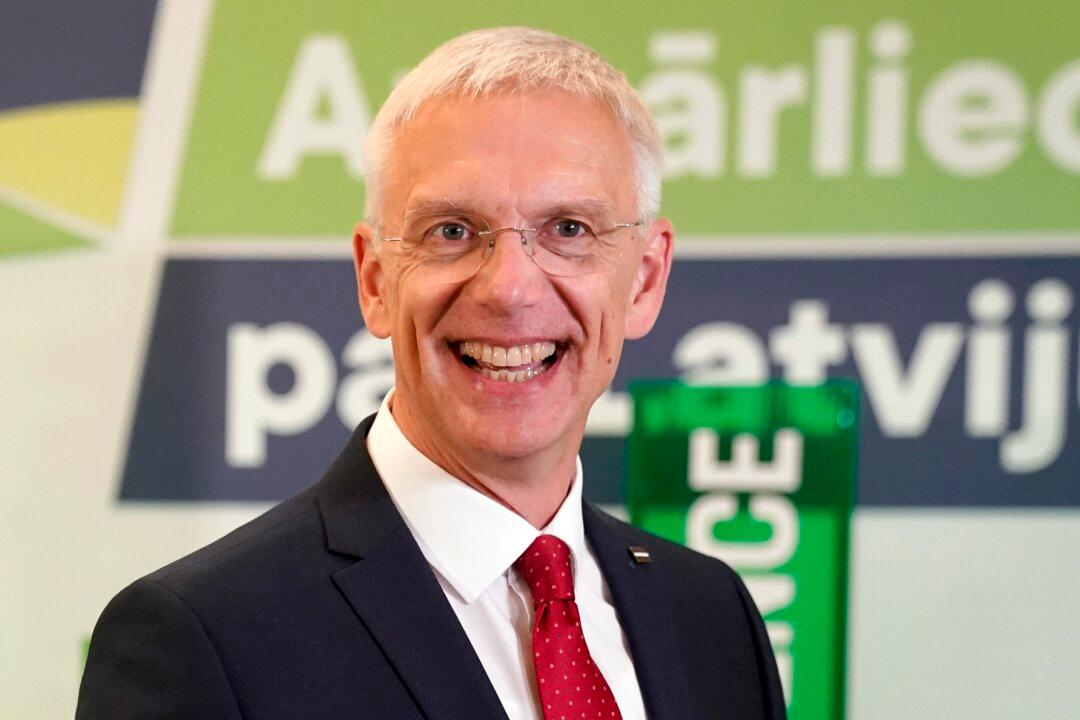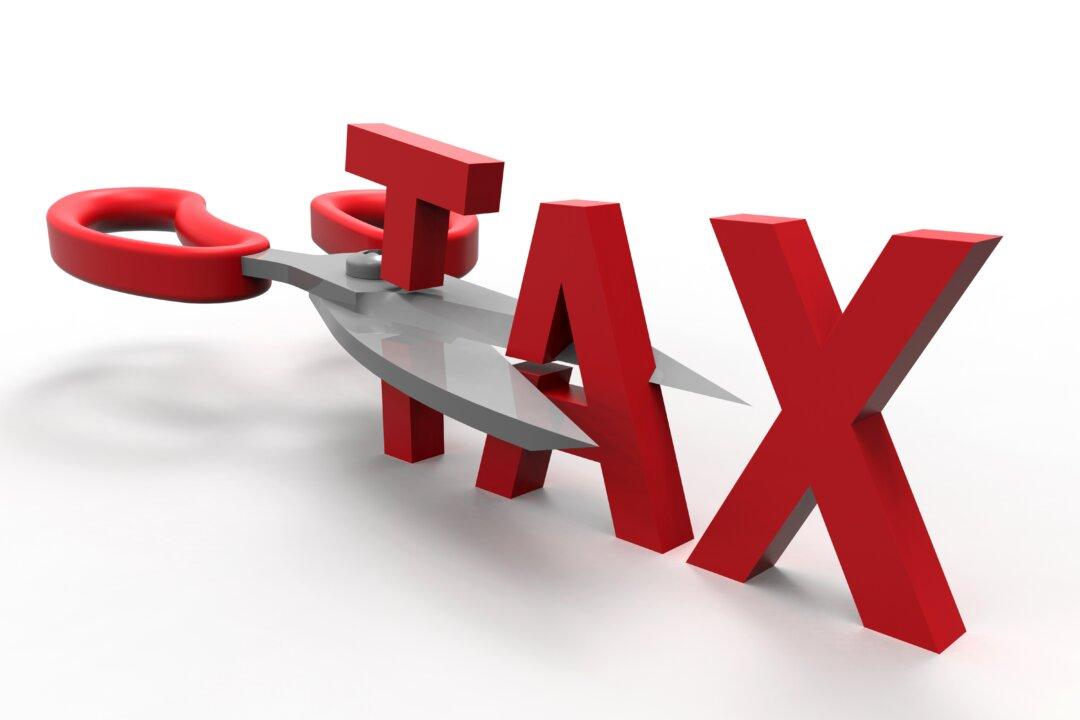HELSINKI—Latvia’s ruling party won the most votes in the country’s general election, according to results published Sunday.
With 100 percent of the votes counted, Prime Minister Krisjanis Karins’ New Unity party had captured 18.97 percent support, while the opposition Greens and Farmers Union was second with 12.44 percent and the new electoral alliance United List—made up of several regional parties—was third with 11.01 percent.





